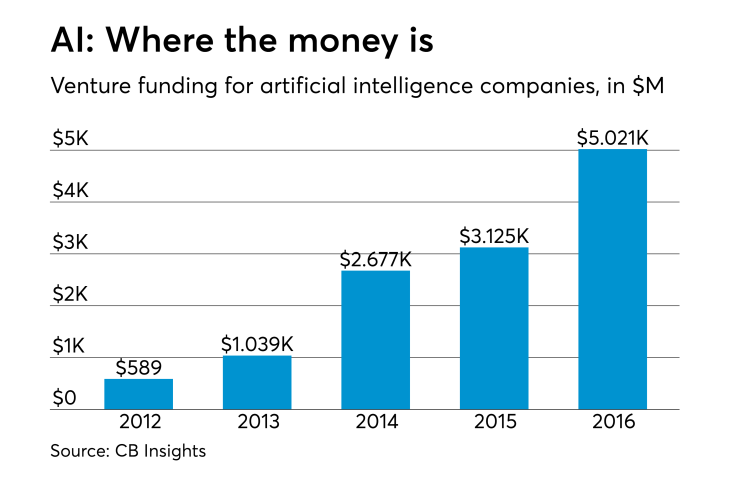Artificial intelligence is poised to transform the finance and accounting industries with advancements that eliminate tedious tasks and free up time for financial staff to prioritize higher impact responsibilities. Yet a
This lack of understanding is a growing issue for financial staff dealing with massive amounts of data. In the digital transformation era, more and more clients are digitizing processes, and increasing the amount of spreadsheets and documents accounting and audit professionals must analyze.
To streamline processes and draw deeper insights, firms should explore the current opportunities offered by AI. Here are three ways these advanced technologies can take the grunt work out of daily tasks:
1. Streamline data entry and analysis
Artificial intelligence helps financial managers stay on top of transactions amid systems that are tedious and time-consuming. Instead of financial data spread out over multiple documents, PDFs and spreadsheets, machine learning — a branch of artificial intelligence — extracts data from receipt images, automatically classifies it based on spend category and populates reports for analysis in one place.
These comprehensive reports can provide businesses with smart insights to improve financial planning. Machine learning also draws deeper insights as it processes data over time, meaning businesses can gain a comprehensive view into long-term spending patterns and accounting staff can provide even greater value to organizations by advising clients on optimal budget forecasting.
2. Reduce fraud
Company spending has become increasingly decentralized. Today, employees spend more money across more spending categories, using more payment methods than ever before. As financial data grows and spreads across additional payment channels, the risk of fraud and noncompliance increases.
According to the
AI, on the other hand, can audit up to 100 percent of spend reports. By predicting patterns and detecting a wide range of anomalies in financial data, AI can help auditors catch fraudulent spending before reimbursement occurs. Because it’s scalable, AI can also easily handle influxes in financial data with the same level of accuracy. In fact, analyzing more data makes it smarter and better at tackling financial fraud.

3. Enforce corporate policy
Artificial intelligence can be used to drastically reduce the time it takes to identify noncompliance issues in finance data. Purchase orders, employee receipts, travel bookings and credit card transactions are automatically scanned for purchases made outside of policy — enabling auditors to quickly right the error and help enforce corporate policies to employees. For example, AI can automatically detect employee expense violations such as disallowed or personal spend, unverifiable receipts, personal credit card usage, disallowed merchants and travel add-ons.
With increased visibility into corporate spending patterns, organizations can also determine which policies are working for the company, as well as whether certain policy violations are justifiable. For example, using sharing economy services could save the company money, suggesting an opportunity for updated policy procedures that better align with employee habits. Using an AI application to gather and summarize numbers helps finance managers identify trends to make data-driven recommendations for their client’s corporate policies.
Finance professionals are long overdue for a technology assistant. By leveraging AI-powered solutions, they can streamline data analyses and focus on more strategic functions for their clients.





